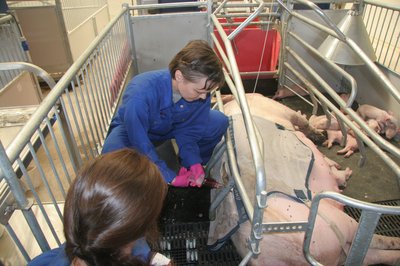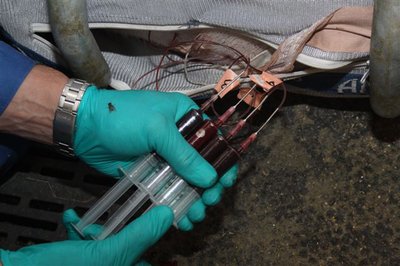

Objectives of the course
The aim of the course is to develop skills in animal experimentation and quantitative metabolic physiology that enable the attendee to address scientific questions related to the biology of animal nutrition. This includes hypothesis formulation, planning of experiments, analysis of experimental designs, work with experimental animals, laboratory analyses, statistical analysis of data, critical data evaluation, interpretation of nutrient fluxes and scientific presentation. The research questions addressed in the course will change along with the actual research projects in the department.
Course contents
The student will work with scientific problems in quantitative nutrient absorption and metabolism both in theory and practice. The course activities include scientific discussions on aspects related with nutrient metabolism, an introduction to experimental and surgical techniques, hands on sampling/animal experimentation and laboratory work, handling of data, calculations and biological interpretation of results, writing of a report, and oral presentation of data.
Learning outcomes and competences
At the end of the course the student should be able to:
- Formulate experimental hypotheses in the field of quantification of nutrient absorption and metabolism.
- Design appropriate studies that answers questions related to inter-organ nutrient fluxes.
- Maintain catheters and draw blood samples from multi-catheterized animals and handle blood samples.
- Select relevant chemical analyses for a specific research project.
- Learn which nutrients are net absorbed from the gastrointestinal tract, which are taken up by various organs like the liver, muscles and mammary gland, and which nutrients are stored/metabolized/secreted or released by the various organs.
- Collect data, perform relevant calculations and do biological interpretation of results and present data orally and written.